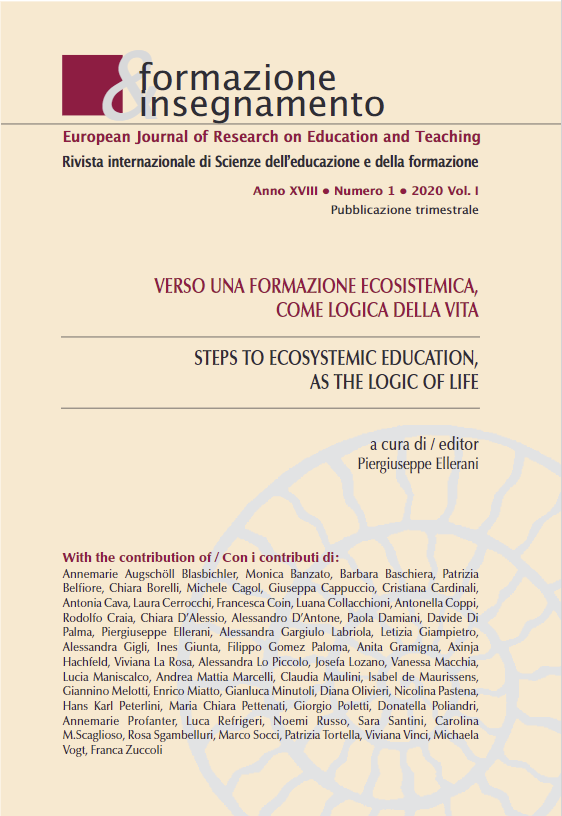Family and Educational Support to Families and Parenting: Between Dysfunctionality and Quality within Educational Care
DOI:
https://doi.org/10.7346/-fei-XVIII-01-20_03Abstract
The contemporary notion of ‘family’ has transitioned, culturally and historically, from a single marital nucleus to a model of multiple families, whose internal dynamics and external relationships with society are characterised by greater complexity and variety. Family can be described, thus, as a system: on the one hand, it fulfils a role which is simultaneously biological, psychological, social and cultural, yet it cannot be taken for granted on a pedagogical level, since the family complex can be, to various extents, dysfunctional. On the other hand, the public has the social responsibility to make use of services set up for the support of families and parenting. These services often encounter issues in their development, so their setting up and evolution needs a system of regular monitoring, revisions and supervision that are pedagogically informed, both for their initial creation and in their eventual functioning, in terms of Adult Education. Departing from this context of theoretical restoration of the complexity of the family system, from the critical issues faced by family support services from the initial formation of specialist pedagogy professionals (as a cultural, professional and existential factor) in university and work environments, this article introduces further substantiation by reflecting on data yielded by qualitative research endeavours in the province of Reggio Emilia, operated both in the field of nucleuses emerging from the relationship between families (such as educational environments or systems) and in the services for family education.
Downloads
Published
How to Cite
Issue
Section
License
Copyright (c) 2020 FORMAZIONE & INSEGNAMENTO. European Journal of Research on Education and Teaching

This work is licensed under a Creative Commons Attribution 4.0 International License.
Formazione & insegnamento is distributed under Attribution 4.0 International (CC BY 4.0).
For further details, please refer to our Repository & Archiving Policy, as well as our Copyright & Licensing Terms.





